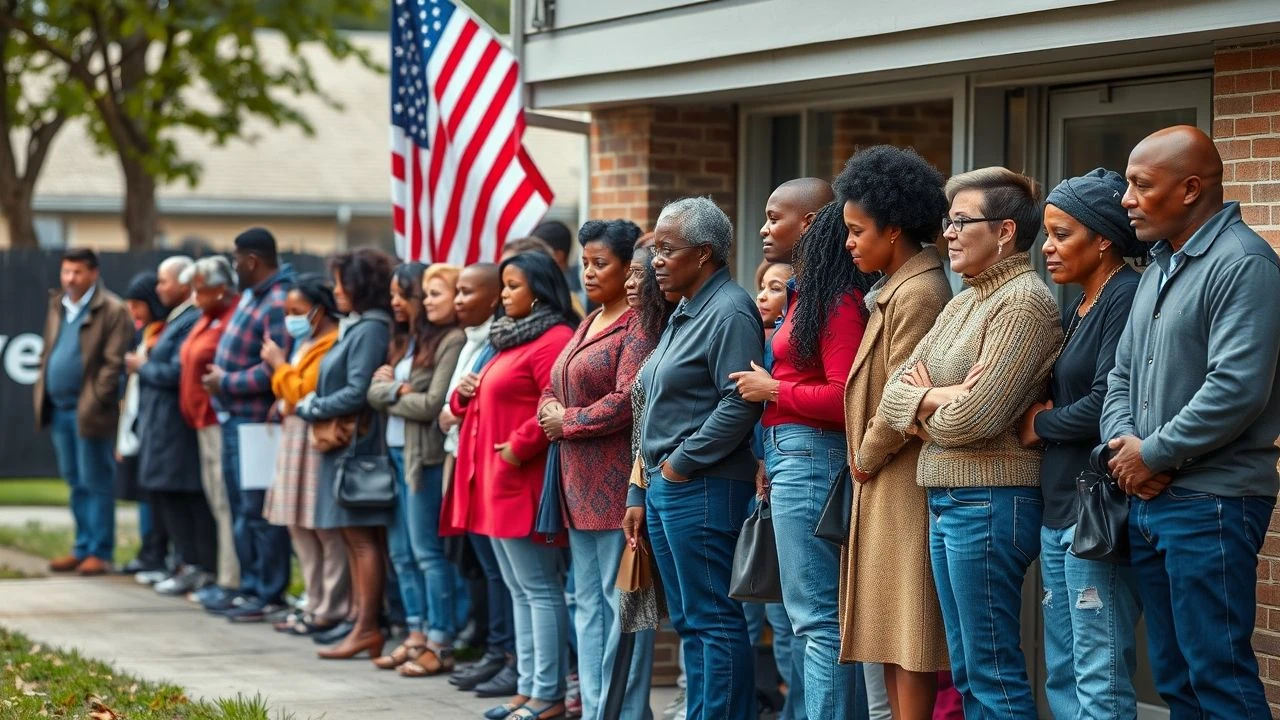
The John Lewis Voting Rights Advancement Act, essentially, aims to restore and modernise key provisions of the Voting Rights Act of 1965, which were weakened by Supreme Court rulings. A key focus is on addressing discriminatory voting practices by establishing a revised process for determining which jurisdictions require federal preclearance before implementing changes to their voting laws. This is to stop voting shenanigans from happening in the first place.
The Freedom to Vote Act, on the other hand, is a more expansive piece of legislation. It seeks to establish national standards for voter registration, including automatic voter registration and same-day voter registration. It also aims to make election day a national holiday, expand access to early voting, and limit partisan gerrymandering. The Act further addresses campaign finance regulations and aims to increase transparency in political spending. The Bill goes after some serious shortcomings within the democratic system.
Arguments for these laws often highlight the need to combat voter suppression, particularly amongst minority groups and other historically disenfranchised populations. Civil rights advocates contend that these measures are essential to ensuring equal access to the ballot box and upholding the fundamental right to vote. They would argue that without such protections, democracy itself is at risk. We must listen to all sides of the debate though, not just the side we agree with.
Opponents, conversely, often raise concerns about federal overreach into state election administration, arguing that states should have the primary authority to regulate their own elections. Some also suggest that the proposed reforms could lead to increased voter fraud or place undue burdens on election officials. Furthermore, they question the necessity of these measures, claiming that existing laws are sufficient to protect voting rights. It's worth listening to these concerns also.
Legal scholars at institutions like the Brennan Center for Justice have provided detailed analyses of both pieces of legislation. For example, reports often clarify the potential impact of restoring preclearance requirements, or on the effect of new voter ID laws. Expert opinion varies, with some endorsing the need for national standards to safeguard against discriminatory practices and others emphasizing the importance of state autonomy in managing elections. For instance, take this quote: "These Acts are a vital safeguard against voter suppression, ensuring that all eligible citizens can exercise their fundamental right to vote without undue burden or discrimination."
Ultimately, the debate surrounding these federal voting rights legislative proposals revolves around competing visions of democracy: one that prioritises national standards to ensure equal access, and another that emphasises state control and local autonomy. The future of voting rights in America hangs in the balance, pending political decisions on these crucial issues.
"Having two weeks to vote early just makes life so much simpler. I don't have to worry about taking time off work on election day."However, other states have pursued measures that critics argue disproportionately affect certain demographics. Strict voter ID laws, requiring specific forms of photo identification, have been implemented, often with claims of preventing voter fraud. Limitations on mail-in voting, particularly those enacted after the surge in postal voting during the 2020 election, have also drawn considerable ire. According to data from the National Conference of State Legislatures, these restrictions have led to demonstrable decreases in voter turnout in some areas, particularly amongst minority communities and younger voters. Academic studies have further corroborated these findings, highlighting the disparate impact of these policies on voter representation. Regional disparities are stark. For instance, whilst some states in the Northeast are pioneering innovative voter access schemes, several Southern states have faced legal challenges over alleged voter suppression tactics. The experiences of voters impacted by these changes vary widely. Some celebrate the ease and convenience of modernised systems, whilst others voice concerns about the disenfranchisement of marginalised groups. Consider this account from a voter in Georgia:
"The new ID requirements made it incredibly difficult for my elderly grandmother to vote. She had to jump through so many hoops just to prove who she was."Understanding these state-level voting reforms – both the successes and the challenges – is crucial for assessing the health of American democracy and ensuring fair access for all citizens.
The question remains: can we expect bipartisan cooperation moving forward, or are we doomed to further political polarisation? That's the million-dollar question, innit? Some political scientists reckon we're heading for continued gridlock, with each side digging in its heels. Others hold out hope that a shared desire to strengthen democracy – however differently defined – might yet foster some common ground.
Ultimately, the long-term implications of current trends are profound for American democracy and civic participation. If large swathes of the population feel disenfranchised or that their voices simply don’t matter, it erodes the very foundations of the system. It is important to guarantee fair access for all Americans. Apathy and disengagement become self-fulfilling prophecies, and the health of American democracy suffers. As one commentator put it: "The future of voting rights hinges not just on legal battles, but on rebuilding trust in the electoral process and ensuring that all citizens feel empowered to participate."

Communities Unite to Combat Opioid Crisis with Comprehensive Strategies
Affordable Housing Crisis: Advocates Demand Policy Changes to Combat Homelessness and Inequality
Rising Awareness Fuels Advocacy for Mental Health Support
Education Underfunded: Calls Mount for Equitable Distribution and Increased Support for Public Schools
Revamping America's Roads: Ambitious Plans to Modernize U.S. Transportation Infrastructure Take Center Stage
Gun Control in America: Renewed Debates Emerge Amidst Rising Violence